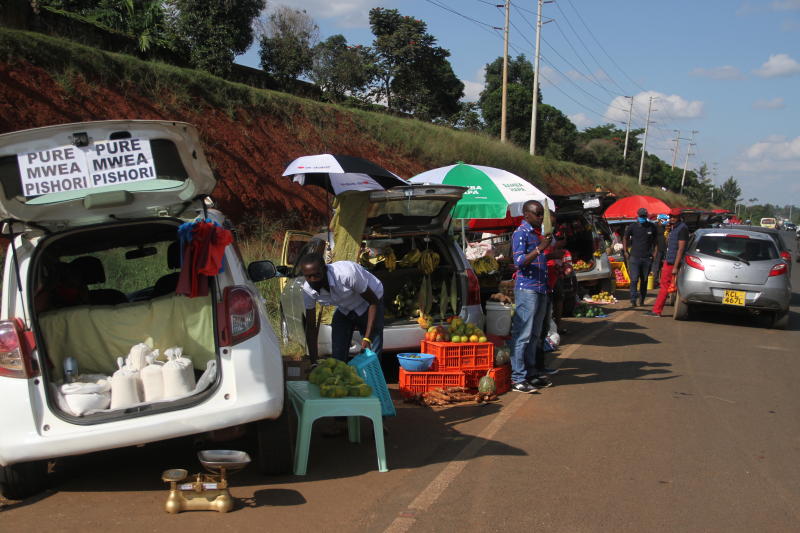×
The Standard e-Paper
Kenya’s Boldest Voice

A number of Kenyans have now moved their businesses to the back of their cars along busy roads. As you speed along the Northern bypass at the Ridgeways/Windsor roundabout you will meet a number of cars packed.
Don’t confuse this for a traffic jam, these are Kenyans from different walks of life hustling through their new normal to get an extra penny during these tough times.







